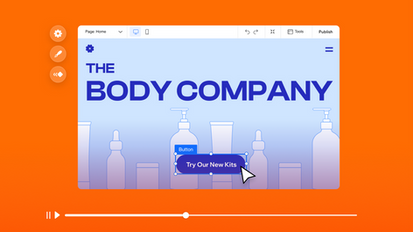Law Firm Website Development
Law Firm Website Development Checklist
Law Firm Website Development
In recent years, the rise of no code web builders has revolutionized the way individuals and businesses create websites. No code web builders provide an easy, efficient, and cost-effective solution for building customized websites without having to write a single line of code. This innovative technology has leveled the playing field, allowing anyone, regardless of their technical expertise, to create stunning websites with ease.

How to Law Firm Website Development
Law Firm Website Development
A web designer’s primary goal is to create a visually appealing website that engages users and encourages them to explore further. This involves using a combination of technical skills and creativity to design a layout that is both aesthetically pleasing and easy to navigate. Web designers must also have a good understanding of user experience (UX) design principles to ensure that the website is intuitive and user-friendly.
In addition to creating the overall design of a website, web designers are also responsible for implementing various features and functionalities. This includes integrating multimedia elements such as images, videos, and animations, as well as creating interactive elements like buttons, forms, and drop-down menus. Web designers may also be responsible for optimizing the website for search engines (SEO) to help improve its visibility and ranking in search results.
To be successful as a web designer, one must possess a strong foundation in graphic design principles, as well as a good understanding of web development technologies such as HTML, CSS, and JavaScript. These skills are essential for creating visually appealing and responsive websites that work seamlessly across different devices and browsers.
Web designers often work closely with clients or project managers to understand their requirements and objectives for the website. This involves conducting research, brainstorming ideas, and creating mock-ups or wireframes to present to the client for review and feedback. Once the design is approved, web designers then proceed to code and develop the website using various programming languages and tools.
There are many different types of web designers, each with their own area of expertise. For example, graphic designers specialize in creating visual elements such as logos, icons, and illustrations, while user interface (UI) designers focus on designing the layout and overall look and feel of a website. User experience (UX) designers, on the other hand, are more concerned with how users interact with the website and how to improve their overall experience.
The role of a web designer can vary depending on the size and scope of the project. For small businesses or individuals looking to create a simple website, a web designer may be responsible for all aspects of the design and development process. However, for larger, more complex projects, web designers may work as part of a team alongside web developers, content creators, and digital marketers to bring the website to life.
In addition to technical skills, successful web designers also possess strong communication and problem-solving abilities. They must be able to effectively communicate their ideas and collaborate with others to bring a project to completion. Web designers must also be able to adapt to changes and solve problems quickly and efficiently, as technology and design trends are constantly evolving.
Importance of Web Hosting
Web hosting is essential for any website to be visible on the internet. Without web hosting, your website would not be accessible to users. When you sign up for a web hosting service, you are essentially renting server space where your website files are stored. The web hosting provider ensures that your website is available to users 24/7, and also provides technical support and maintenance services to keep your website running smoothly.
Another important aspect of web hosting is website speed and performance. The speed at which your website loads can have a significant impact on user experience and search engine rankings. A reliable web hosting provider will ensure that your website loads quickly and is accessible to users across the globe. In addition, web hosting providers offer security features such as SSL certificates and regular backups to protect your website from cyber threats and data loss.
Different Types of Web Hosting
There are several types of web hosting services available, each with its own set of features and benefits. The most common types of web hosting are:
1. Shared Hosting: Shared hosting is the most basic and affordable type of web hosting. In this setup, multiple websites share the same server resources, including storage space, bandwidth, and CPU power. Shared hosting is ideal for small businesses and individuals with low traffic websites.
2. VPS Hosting: VPS (Virtual Private Server) hosting is a step up from shared hosting. In VPS hosting, websites are hosted on virtual servers that mimic dedicated servers but share server resources with other websites. VPS hosting offers more control and customization options compared to shared hosting.
3. Dedicated Hosting: Dedicated hosting provides users with their own physical server. This type of hosting is ideal for websites with high traffic and resource-intensive applications. Dedicated hosting offers the highest level of performance and security but is also the most expensive option.
4. Cloud Hosting: Cloud hosting is a flexible and scalable hosting solution that utilizes cloud infrastructure to host websites. In cloud hosting, websites are hosted on a network of virtual servers that can be easily scaled up or down based on demand. Cloud hosting is a cost-effective option for websites with fluctuating traffic levels.
Factors to Consider When Choosing a Web Hosting Provider
When choosing a web hosting provider for your website, there are several factors to consider to ensure that you are getting the best service for your needs. Some of the key factors to consider include:
1. Reliability and Uptime: It is crucial to choose a web hosting provider with a proven track record of reliability and uptime. Look for providers that guarantee uptime of at least 99.9% and have robust infrastructure to prevent downtime.
2. Performance and Speed: Website speed and performance are critical for user experience and search engine rankings. Choose a web hosting provider that offers fast servers and optimized performance for your website.
3. Security Features: Security is a top priority for websites, especially those that handle sensitive information. Look for web hosting providers that offer SSL certificates, regular backups, and other security features to protect your website from cyber threats.
4. Customer Support: If you encounter technical issues or need assistance with your website, reliable customer support is essential. Choose a web hosting provider that offers 24/7 support via multiple channels such as phone, email, and live chat.
5. Pricing and Plans: Compare pricing and features across different web hosting providers to find a plan that fits your budget and needs. Consider factors such as storage space, bandwidth, and scalability when choosing a hosting plan.

How to Master Law Firm Website Development
Law Firm Website Development
Conclusion
SEO is a powerful marketing tool that can help improve your website’s visibility in search engine results, drive organic traffic to your website, and increase leads and conversions. By understanding and implementing the basics of SEO, including keyword research, content creation, on-page and off-page optimization, technical SEO, and monitoring and analysis, you can improve your website’s online presence and grow your business. Use this SEO marketing tutorial as a guide to help you navigate the complex world of SEO and achieve success in the digital landscape.

